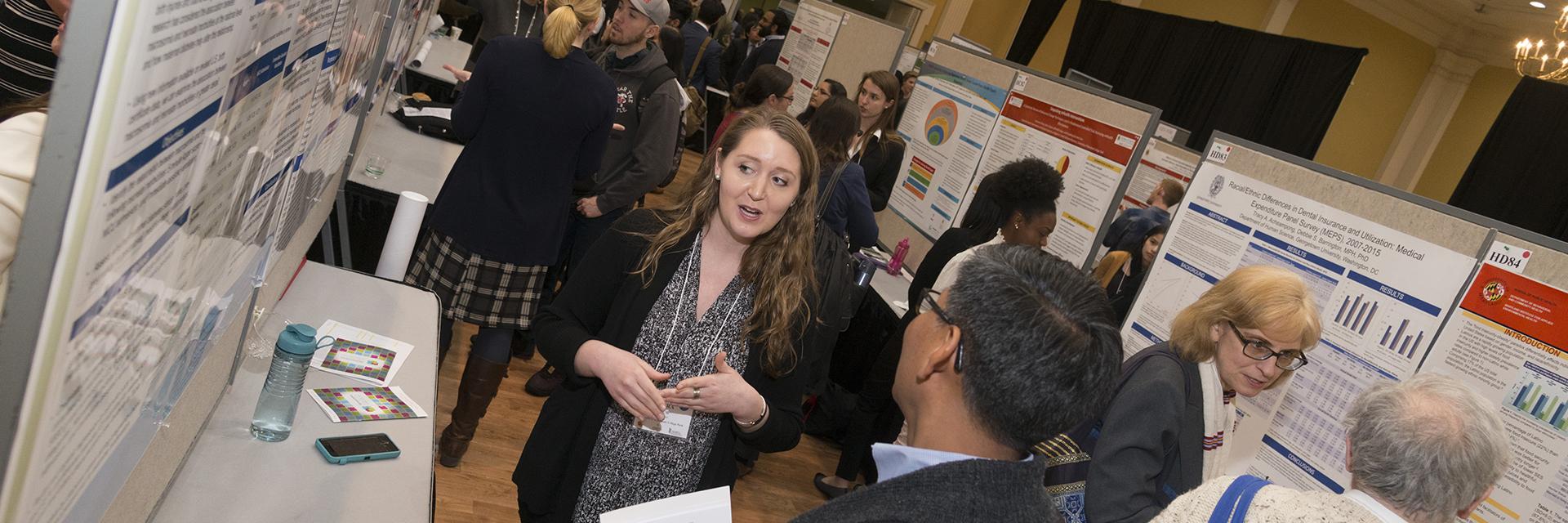Much of the research conducted throughout the University of Maryland School of Public Health has global applications to prevent disease and improve health of populations. Here is a selection of research projects conducted by key faculty with funding for global health initiatives and ways that students may get involved.
Dr. Borzekowski (Dr. B.) examines the impact of media on children around the world. In the past, she has assisted Sesame Workshop in the creation of curriculum and muppets in Indonesia, Bangladesh, India, South Africa, and Nigeria. Currently, Dr. B.'s research work is with Ubongo Kids in Tanzania and Nigeria, and Blue Butterfly in Haiti. While students can collaborate on health communication projects, it is also possible for undergraduate and graduate students to gain Dr. B.'s mentorship and support in their pursuit of global health research projects.
Dr. Kirsten Stoebenau has spent over 15 years addressing adolescent girls and young women’s disproportionate risk to HIV. She served as the co-chair of a Working Group on Transactional Sex and HIV under the STRIVE research consortium. This group aimed to better understand and mitigate the role of transactional sex (informal sexual exchange relationships) in adolescent girls and young women’s risk of HIV across sub-Saharan Africa.
She continues work in HIV prevention and treatment through collaborations with the University of Maryland, Baltimore’s Institute of Human Virology. Dr. Stoebenau contributes to intervention development and evaluation of programs that work with community health workers to deliver HIV prevention and treatment services to vulnerable populations in Zambia.
More recently, she has begun to focus on the health impacts of the social stratification of union and family formation processes within the context of rising economic inequality across sub-Saharan Africa. In a project funded by the NICHD, she is using Demographic and Health Survey data to examine trends in the age at first marriage and first childbirth across socio-economic status. In addition, she is working with colleagues across the University on two projects in Nairobi, Kenya, in partnership with the African Population and Health Research Center. These projects aim to improve the measurement of marriage, and assess whether and how the “strength” of a marital relationship and the support of kin impacts women’s and their children’s health and wellbeing in Nairobi, Kenya.
Dr. Amir Sapkota's research group focuses on the intersection of climate change and human health with a particular emphasis on cardiopulmonary, renal and diarrheal diseases. His group's ongoing collaboration with the Maryland Department of Health has demonstrated the ongoing health impacts of climate change in our communities. On a global scale, the group is developing an early warning system for diarrheal disease in the Asia-Pacific Region.
The bulk of research activities in Sapkota's research group focus on the fundamental question of how we adapt to these threats from climate change on health as a society with an overall objective of driving policies that inform effective and meaningful public health adaptation strategies that will minimize climate change driven-morbidity and mortality at local, national and global levels.
To that end, his group is interested in unmasking disparities in climate change driven health burdens, understanding compound hazards and developing early warning systems to minimize morbidity and mortality resulting from extreme events with seasonal to sub-seasonal lead time. Within this framework, their work focuses on diarrheal diseases as well as renal and cardiopulmonary health outcomes.
Visit climateandhealth.umd.edu
Dr. Amy Sapkota is the Director of CONSERVE: A Center of Excellence at the Nexus of Sustainable Water Reuse, Food & Health, a multi-institution Center funded by the U.S. Department of Agriculture, National Institute of Food and Agriculture (2016-2021). She is also the Principal Investigator of UMD Global STEWARDS (STEM Training at the Nexus of Energy, Water Reuse and Food Systems), a National Research Traineeship (NRT) program funded by the National Science Foundation (2018-2023).
The mission of CONSERVE is to facilitate the adoption of transformative on‐farm water treatment solutions that enable the safe use of nontraditional irrigation water (e.g. reclaimed water, return flows) on food crops. The overarching goal of the UMD Global STEWARDS program is for graduate trainees to become adept at working and communicating across food-energy-water (FEW) disciplines, enabling transformative discoveries that can only be realized through transdisciplinary approaches and systems-based thinking.
Visit conservewaterforfood.org
Visit globalstewards.umd.edu/
